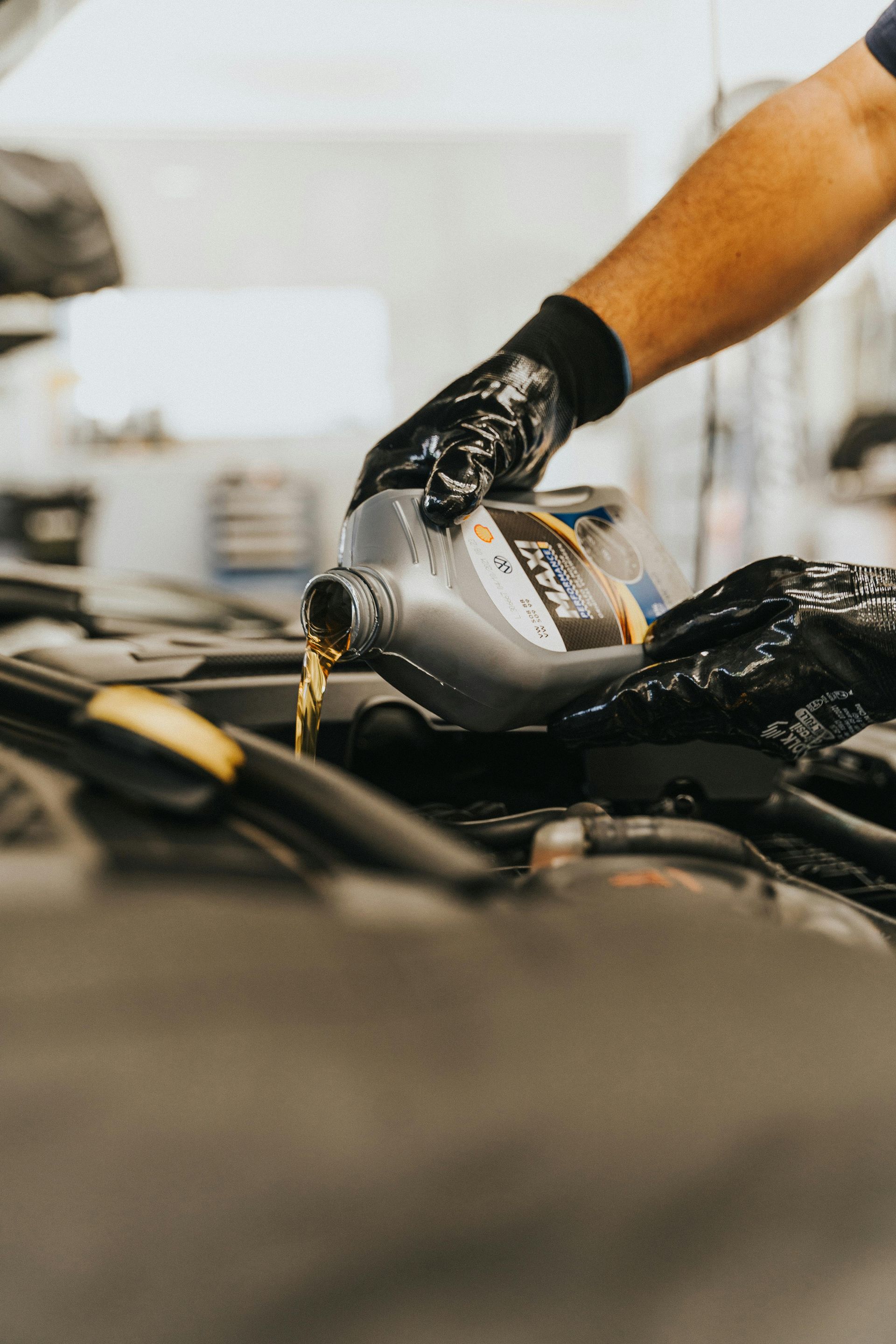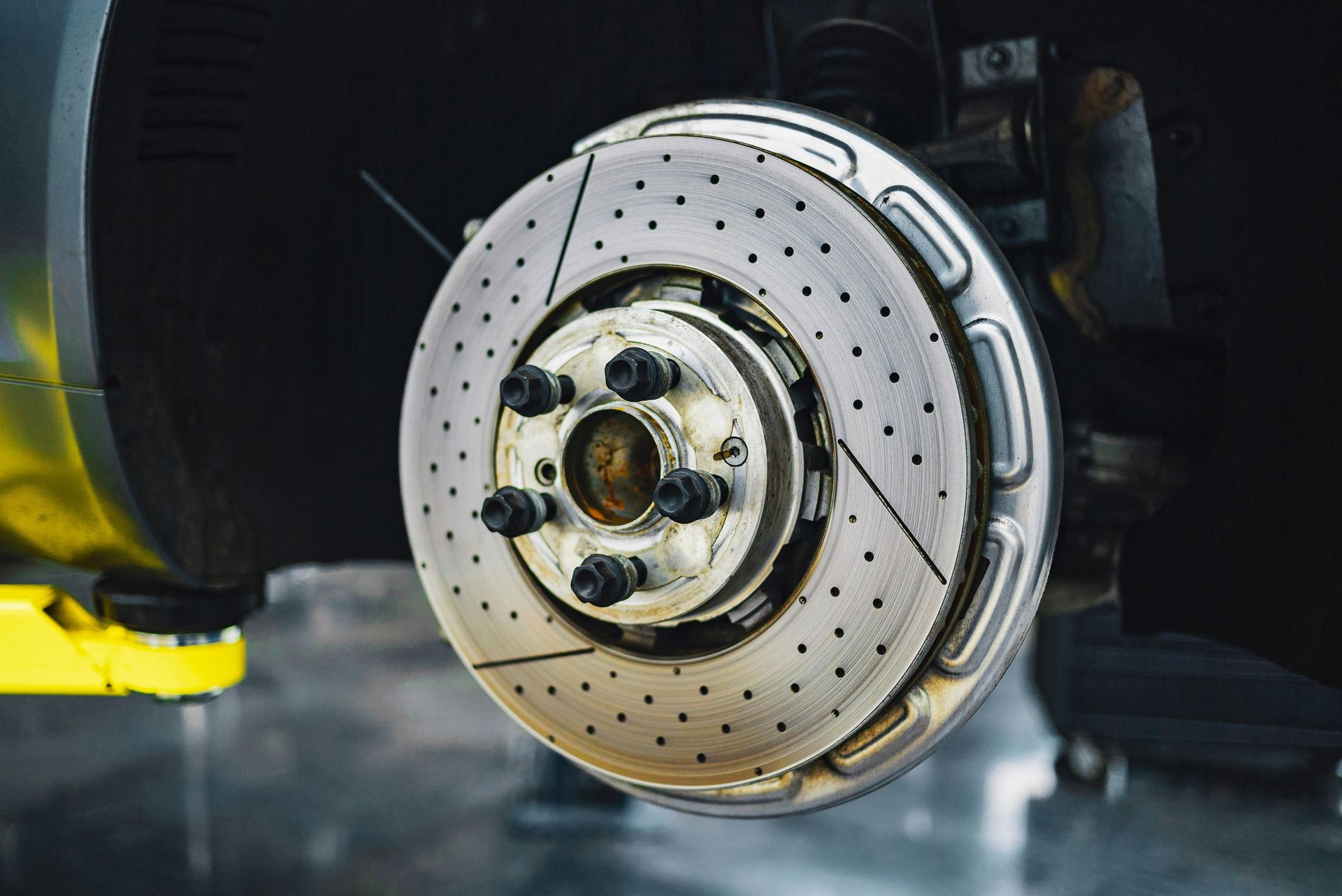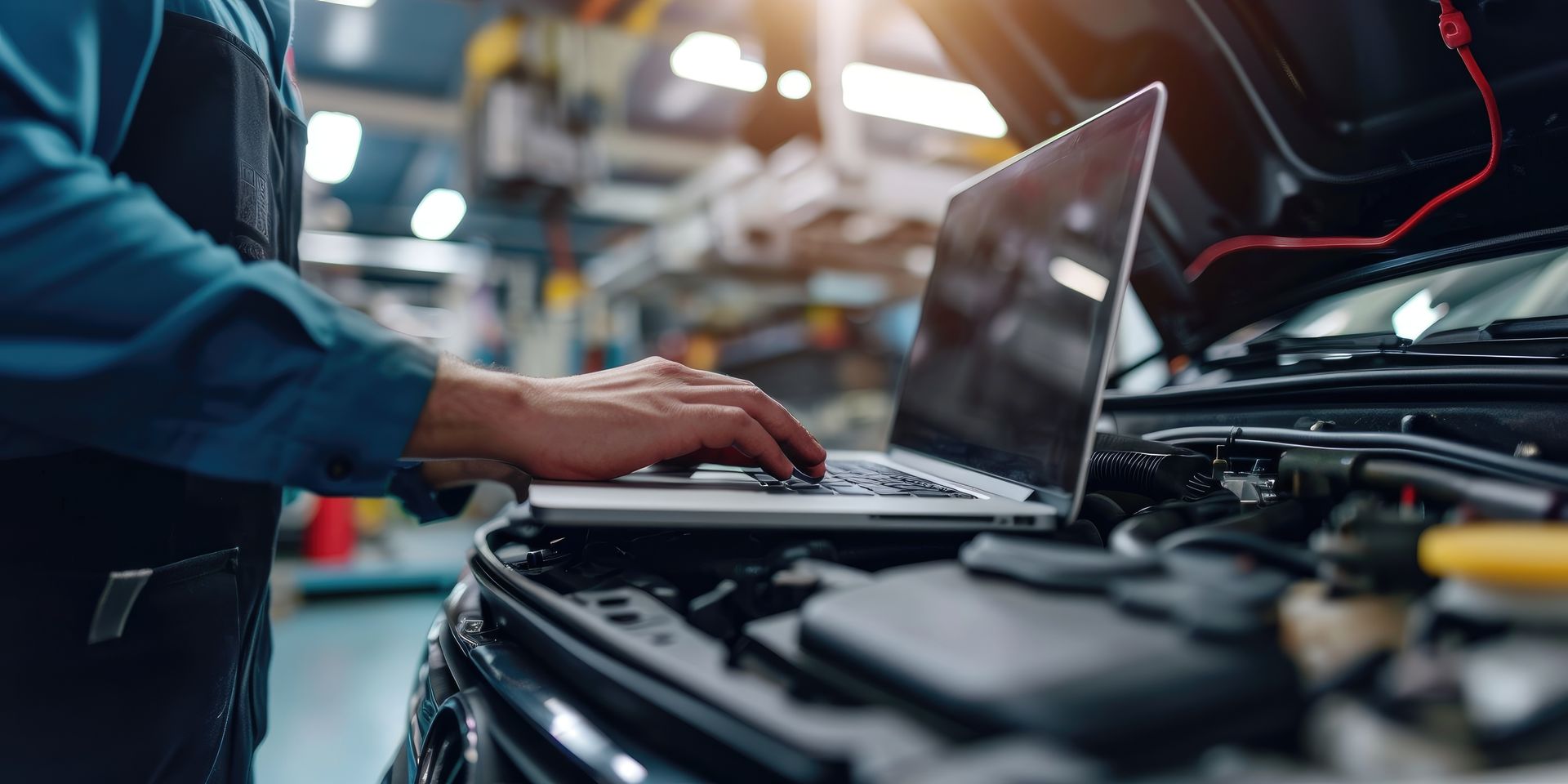How to Detect Car Problems Before They Leave You Stranded
Victor Stewart • April 2, 2025
How to Detect Car Problems Before They Leave You Stranded
s a car owner, the last thing you want is to be stranded on the side of the road, especially when you're in a rush or far from home. While some car problems can arise unexpectedly, many issues can be detected early with proper care, regular inspections, and attention to subtle signs. By identifying potential problems before they escalate, you can avoid inconvenient breakdowns, reduce costly repairs, and keep your vehicle running smoothly for years to come.
At The Car Guy, we believe in the importance of proactive car maintenance to ensure the safety, reliability, and longevity of your vehicle. Our experienced team of technicians in 38th Street, CA is dedicated to providing expert diagnostics and repair services to keep your car running at its best. In this blog, we will walk you through how to detect car problems before they leave you stranded and share practical tips for early detection.
1. Unusual Noises
One of the first signs that something might be wrong with your car is unusual noises. Every car makes sounds, but certain noises indicate trouble. Pay attention to any strange noises while driving, as they can help you pinpoint potential issues early on.
Common Noises and What They Could Mean:
- Grinding or squealing when braking: This could be a sign that your brake pads are worn down and need replacement.
- Clicking or knocking sounds from the engine: This may indicate problems with the engine components, such as low oil levels or failing parts.
- Rattling noise from underneath the car: Could mean a loose exhaust or other parts that need tightening.
- Whining or howling noise when driving: This could indicate issues with the power steering or a failing alternator.
If you hear any unusual noises, don’t ignore them. Bring your car to The Car Guy for an inspection so we can diagnose the issue before it leads to a breakdown.
2. Dashboard Warning Lights
Your car’s dashboard is designed to alert you to potential problems through warning lights. While some lights may indicate minor issues, others can point to serious concerns that require immediate attention.
Key Warning Lights to Watch Out For:
- Check Engine Light: This light can signal a variety of issues, from a loose gas cap to more serious engine problems. If it stays on, it's crucial to get it checked out right away.
- Oil Pressure Warning: If this light appears, it usually means that your oil levels are low, or there is a problem with the oil pressure system.
- Battery Warning Light: This indicates that there may be a problem with your car’s charging system, such as a faulty alternator or battery.
- Brake Warning Light: This is an important safety feature. If it lights up, it could mean that your brake fluid is low, or there's a problem with your braking system.
- Tire Pressure Warning: A low tire can cause poor handling and increase the risk of a blowout, so if this light comes on, check your tires immediately.
Ignoring these warning lights can lead to severe damage, which may leave you stranded. At The Car Guy, we offer comprehensive diagnostic services to identify and address the issue before it becomes a major problem.
3. Fluid Leaks
If you notice puddles of fluid under your car, it's an indication that something isn't right. Different types of fluid leaks can point to specific issues, and addressing them early can help you avoid serious damage to your car.
Common Fluids and Their Implications:
- Engine Oil: If you see dark brown or black puddles, it could indicate an oil leak. Low oil levels can cause your engine to overheat and seize.
- Transmission Fluid: Bright red or pink fluid could be leaking from the transmission, indicating a leak or other transmission issue. This could lead to expensive repairs if not fixed promptly.
- Coolant: A green or orange fluid leak under your car may mean that your coolant is leaking. Without sufficient coolant, your engine could overheat and cause major engine damage.
- Brake Fluid: A brake fluid leak can reduce the effectiveness of your brakes, creating a dangerous situation if you ignore it.
Any fluid leaks should be inspected immediately to avoid damage to your engine or other critical parts. At The Car Guy, we offer fluid leak detection and repair to prevent further complications.
4. Poor Acceleration and Hesitation
If you notice that your car is hesitating or struggling to accelerate, it could indicate a problem with your fuel system, engine, or transmission. When you step on the gas pedal, your car should respond quickly and smoothly. If that’s not the case, something might be wrong.
Possible Causes of Poor Acceleration:
- Fuel System Issues: Clogged fuel injectors or a dirty fuel filter can cause poor fuel flow and hesitation when accelerating.
- Spark Plug Problems: Worn-out spark plugs can result in engine misfires, which can cause poor acceleration.
- Transmission Problems: If the transmission is slipping, it can cause a delayed or erratic acceleration.
If your car is experiencing poor acceleration or hesitation, bring it in for an immediate check-up at The Car Guy. Our team can diagnose the root cause and ensure your vehicle is performing optimally.
5. Overheating Engine
An overheating engine is one of the most severe issues a car can face. If your car’s temperature gauge rises above the normal range or if you notice steam coming from under the hood, it’s essential to stop driving and address the issue immediately.
Common Causes of Overheating:
Low Coolant Levels: If the coolant level is too low, your engine may not be properly cooled, leading to overheating.
Faulty Radiator: A radiator that’s leaking or clogged will fail to effectively cool the engine.
Broken Water Pump: The water pump circulates coolant throughout the engine. If it fails, the engine may overheat quickly.
If you notice any signs of overheating, turn off the engine and call for assistance. Continuing to drive while your engine is overheating can cause severe damage, such as a blown head gasket or a seized engine.
6. Difficulty Starting the Car
If your car is slow to start or you hear a clicking sound when you turn the key, it could indicate problems with the battery, alternator, or starter motor. A weak battery is the most common cause of starting issues, but other components like the alternator or starter can also cause trouble.
Possible Causes of Starting Problems:
Dead Battery: If the battery is old or not holding a charge, it may struggle to start your car.
Faulty Alternator: If your alternator isn’t charging the battery properly, the car may have difficulty starting or may stall soon after starting.
Broken Starter Motor: A malfunctioning starter motor may cause the engine to crank slowly or not start at all.
If your car struggles to start, get it checked immediately to avoid being stranded. At The Car Guy, we can test your battery, alternator, and starter to identify the issue.
7. Vibrations or Pulling While Driving
If your car vibrates while driving or pulls to one side, it could be a sign of alignment issues, suspension problems, or tire issues. These problems can worsen over time, causing uneven tire wear, poor handling, and decreased safety.
Possible Causes:
Wheel Alignment Issues: Misaligned wheels can cause your car to pull to one side and create uneven tire wear.
Tire Problems: Worn-out tires or imbalanced tires can cause vibrations or a bumpy ride.
Suspension Issues: Worn suspension parts can cause handling problems and make the car feel unstable.
If your car is pulling or vibrating, have it inspected as soon as possible to prevent further damage to the tires and suspension system. The Car Guy offers alignment and suspension services to ensure your car handles properly and stays safe on the road.
8. Unexplained Smells
Strange smells inside your car are another warning sign that something isn’t right. While some smells may not be serious, others can indicate problems that could leave you stranded or even put you at risk.
Common Smells and Their Causes:
- Burning Smell: This could be a sign of overheating components, burning brakes, or an electrical short. If you smell burning while driving, pull over immediately and turn off the engine.
- Sweet Smell: A sweet odor may indicate a coolant leak, which can cause your engine to overheat.
- Musty or Moldy Smell: This smell could come from a clogged air conditioning system or a water leak inside the cabin.
- Fuel Smell: A strong fuel odor may indicate a fuel leak, which can be dangerous.
If you notice any of these odors, it’s crucial to have your vehicle inspected as soon as possible. The Car Guy can identify the source of the smell and address the problem before it becomes a major issue.
Conclusion
Detecting car problems early is the key to preventing breakdowns and ensuring your vehicle runs smoothly and safely. Whether it’s unusual noises, warning lights, fluid leaks, or other issues, paying attention to your car’s behavior and seeking timely maintenance can save you from being stranded on the side of the road.
At The Car Guy, we are dedicated to keeping your vehicle in top condition with expert diagnostics and repairs. If you notice any of the signs mentioned above, don’t wait! Contact us today to schedule an appointment and ensure your car is always ready for the road ahead.
Quality OEM Services
affordably delivered.
Services
List of Services




Services
List of Services
© 2024 The Car Guy 38th. All Rights Reserved | Website managed by Shopgenie


